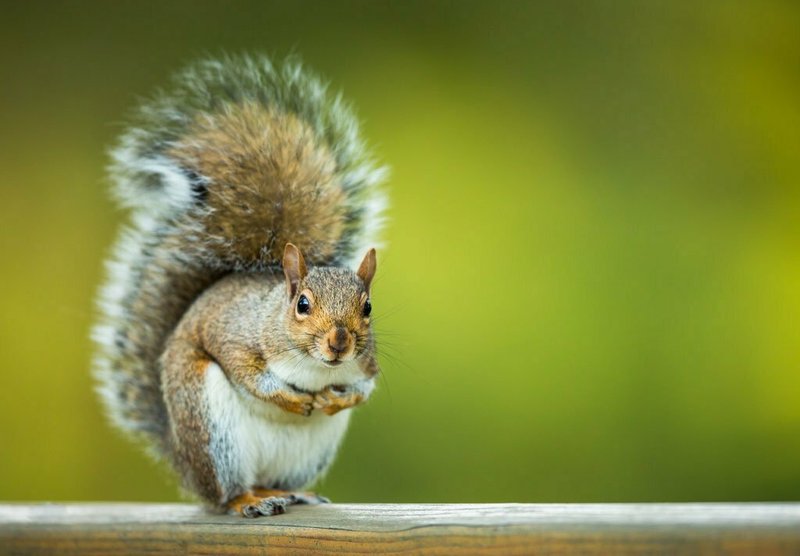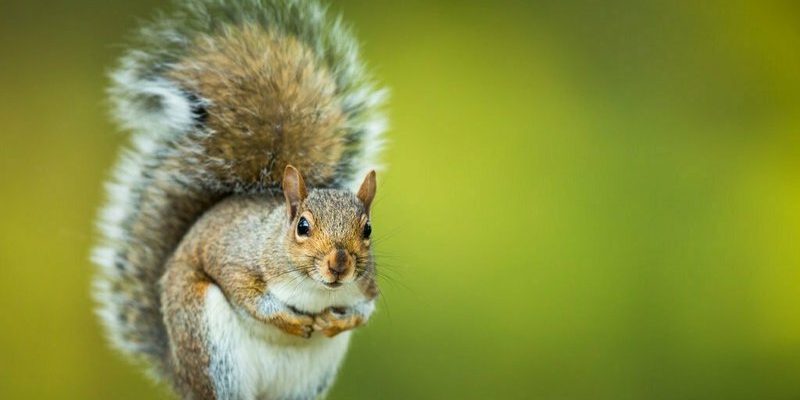
In this article, we’ll discuss various aspects of squirrel behavior, health risks, and how to coexist with them safely. Whether you have a squirrel-loving kid or just wonder about those confident little critters in your backyard, you’ll find the facts helpful. So, grab a cup of coffee, and let’s get into it!
Understanding Squirrel Behavior
Squirrels are fascinating creatures with intriguing behaviors. They’re primarily known for their ability to scamper up trees and leap from branch to branch. But what really makes them tick? Squirrels are generally social animals, often seen in groups. They communicate through a variety of chirps and barks, showing their moods and alerting others to danger.
However, squirrels can also exhibit aggressive behavior, particularly when they feel threatened or cornered. For example, if a female squirrel is protecting her young, she might defend her territory fiercely. You might be wondering why you’d ever be in such a situation. Well, if you inadvertently approach a nesting area, you might encounter a squirrel that’s not so friendly.
It’s important to remember that their aggression is typically defensive rather than malicious. They don’t seek out conflicts with humans, but unpredictability can lead to unfortunate encounters. This is why understanding their behavior is key to avoiding any potential dangers.
Health Risks Associated with Squirrels
One of the biggest concerns with squirrels is their role as carriers of diseases. They can spread various illnesses, not just to other animals but also to humans. Some of the most notable ones include Lyme disease, leptospirosis, and even salmonella. You might think, “But I don’t pet the squirrels!” and you’d be right. However, the real risk lies in indirect contact.
Squirrels often infest urban areas and can leave droppings or urine in public places. If you touch a surface contaminated with these droppings, you could be at risk of infection. It’s crucial to keep picnic areas or playgrounds clean and to wash your hands afterwards, especially if you’ve had any direct contact with these animals.
In addition, squirrels are known to carry ticks and fleas, which can hitch a ride into your home. If you have pets roaming around outside, they might come into contact with these parasites. Keeping your yard clean and monitoring your pets can help mitigate this risk.
Can Squirrels Attack Humans?
While squirrels don’t typically attack humans without reason, it’s essential to acknowledge that it’s not impossible. They’re more likely to bite when they feel cornered or threatened. For instance, if a squirrel is trapped or unable to escape a situation, it may attempt to defend itself.
Imagine you’re enjoying a lovely afternoon in the park, and a curious squirrel approaches you to investigate. If you happen to startle it or reach out to grab it, it could bite in self-defense. This is why keeping a respectful distance from wildlife is always the best practice.
There have been rare cases where squirrels have bitten humans, often leading to minor injuries. In these situations, it’s vital to wash the wound thoroughly and seek medical attention if necessary. In short, while true attacks are uncommon, they can happen under certain circumstances.
How to Coexist With Squirrels Safely
You don’t have to go all out and build a fortress to keep squirrels at bay. Instead, let’s focus on some simple strategies for living in harmony with these critters while keeping yourself safe. Here are a few helpful tips:
- Feed Wisely: If you enjoy feeding squirrels, limit the amount and consider using designated feeding stations. This keeps them at a safe distance from your home.
- Secure Trash Bins: Squirrels have a knack for rummaging through trash. Ensure your bins are tightly sealed to prevent them from scavenging.
- Seal Entry Points: Inspect your home for any gaps or holes that squirrels could exploit. This is particularly crucial in attics or basements.
By being proactive, you can minimize the chances of unwanted encounters. Always remember that squirrels are just trying to survive, and with a little caution, you can both enjoy the beauty of nature and stay safe.
Comparing Squirrels to Other Wildlife
When it comes to wildlife, it’s easy to see that squirrels aren’t the only ones we should be cautious about. For example, raccoons and bats can pose more significant health risks due to their aggressive scavenging behavior and potential to carry rabies.
In contrast, squirrels are primarily herbivores, munching on nuts, fruits, and seeds. This diet limits their aggressiveness compared to predators, which often have more concerning interactions with humans. Nevertheless, understanding their differences is essential when assessing risks in your neighborhood.
If effective wildlife management is a concern for you, consider which animals are common in your area. Different regions encounter unique animals, and recognizing what might pose a threat helps you prepare.
Squirrels certainly add charm to our parks and backyards, but it’s essential to remember that they are wild animals. While they’re generally harmless, knowing their behavior, health risks, and how to coexist safely can make your experience with these furry friends enjoyable and safe.
So, the next time you spot a squirrel around, think twice before reaching out. Respect their space, and enjoy watching their antics from a safe distance. Embrace nature, but always remember that, like any wild creature, squirrels can have their own set of challenges. By understanding them better, you can appreciate their role in the ecosystem while keeping yourself safe.

